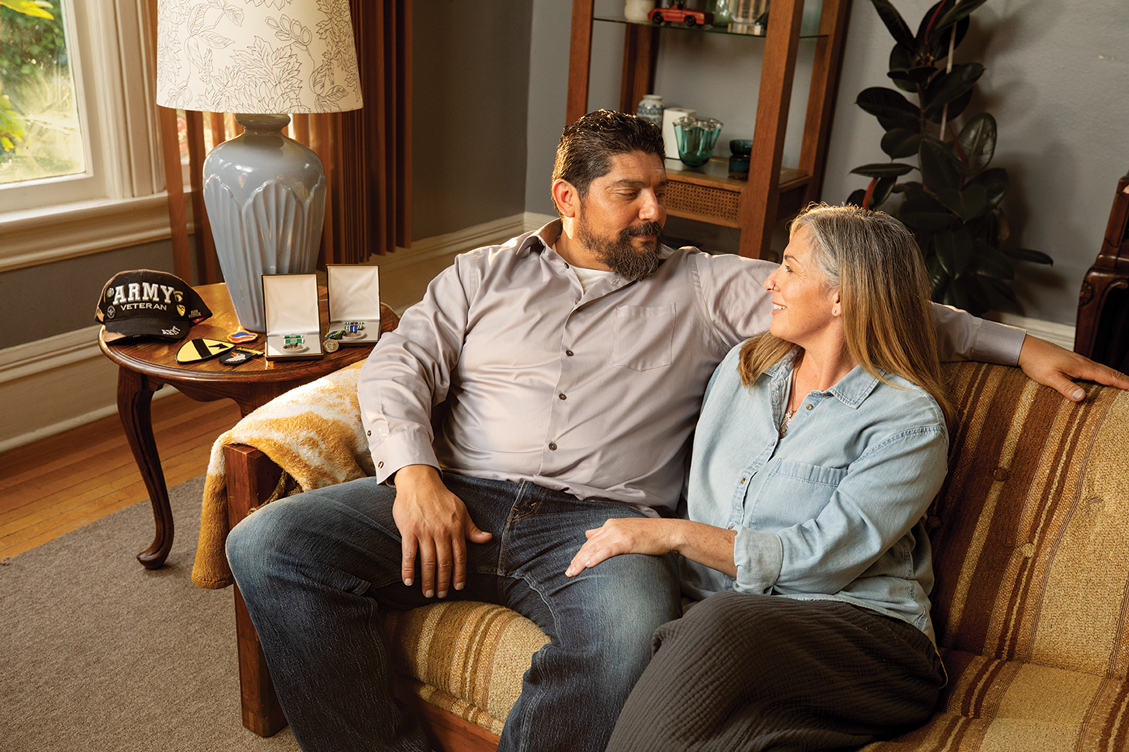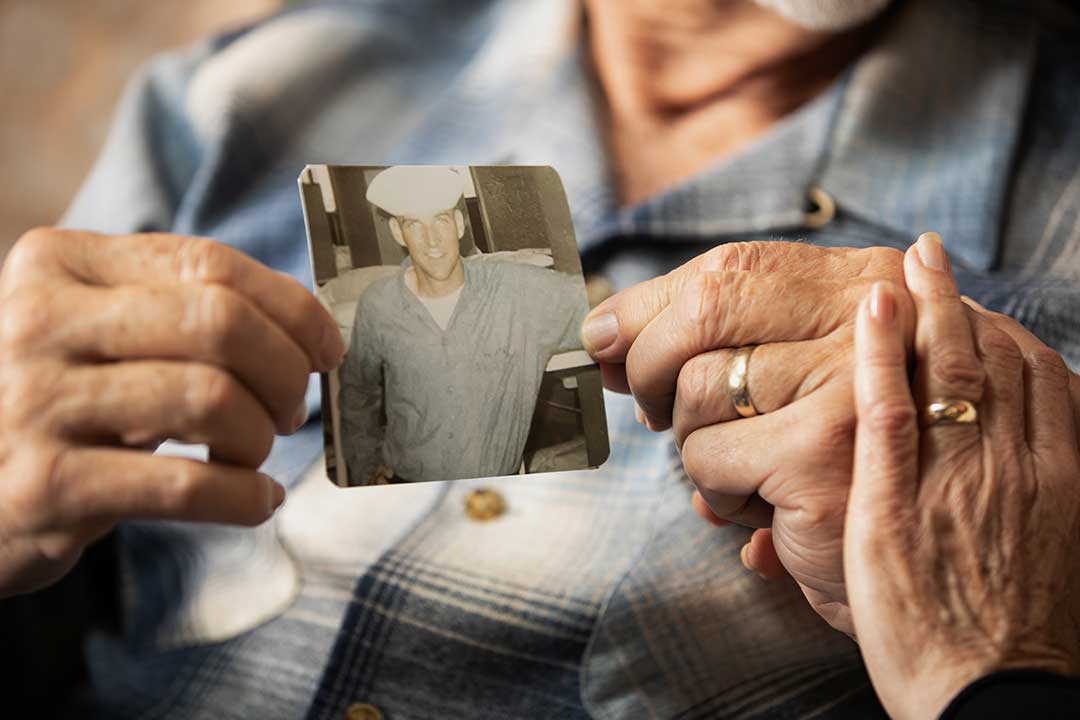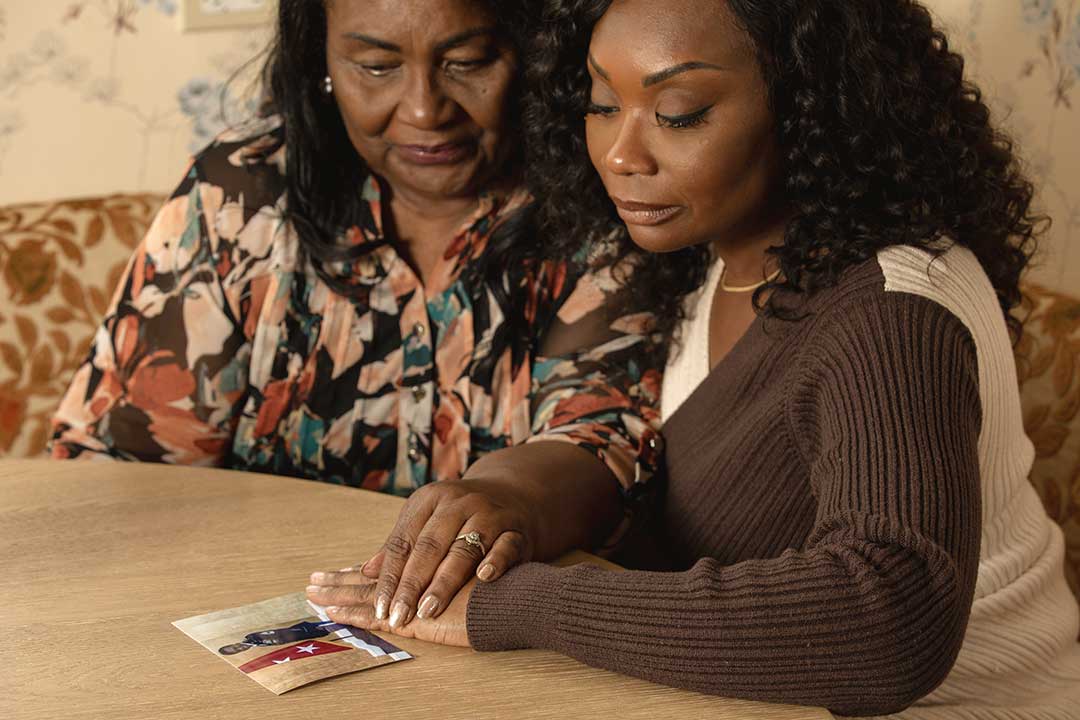For Family and Friends
If a Veteran in your life is struggling, you can help. Learn how to start a conversation to help understand any challenges they may be experiencing. Learn how to support the Veteran in your life, take better care of yourself, and strengthen your relationship. Let them know that seeking help is a sign of strength.









Understand when the Veteran in your life needs help
Veterans are often unaware they need help or reluctant to ask for it. As a family member or friend, here are some signs that you need to initiate a conversation.
Is the Veteran in your life:
- Experiencing sleep or fatigue issues?
- Having a difficult time financially?
- Having a hard time dealing with stress?
- Bothered by traumatic memories?
- Using alcohol or drugs in unhealthy ways?
- Struggling with personal relationships?
These are just some of the signs or struggles you may observe. Whenever you notice new or ongoing changes in a Veteran’s behaviors, attitudes or moods, it’s a good time to start a conversation and offer your support.
Start the conversation
By starting a conversation about your concerns, you let the Veteran know you’re there, you care, and you’re ready to listen. It’s natural to be nervous about starting this conversation.
The tips that follow can help you feel more prepared and comfortable.
First, focus on your own observations and share your feelings:
“You’ve mentioned feeling very overwhelmed lately, and I’m wondering how you’re doing.”
“I wanted to check in with you because you seem like you’ve been dealing with a lot.”
“I care about you and just wanted to see how you’re doing.”
“I’ve been worried about you and your health because you've seemed very stressed over the past few months.”
Do
- Be yourself
- Remain calm
- Listen without judgment
- Be positive
Don't
- Argue
- Lecture
- Agree to confidentiality
- Blame yourself
Most importantly, let your care and compassion guide you during the conversation and give your Veteran the space to speak openly. Why shouldn’t you agree to confidentiality? You don’t want to have to break your word, and if you think the Veteran’s life is in danger, you may need to speak with a mental health or medical professional.
“One of the bravest things he [my husband James] ever did wasn't when he first enlisted. It was when he found his first support group. Doing things for yourself so that you can support others, that's bravery."April, Veteran Spouse
Access resources that support Veterans and you
Whatever your need for helping the Veteran in your life, you are not alone. Perhaps you are just starting to explore what you can do. Perhaps you have tried, but feel stuck or burnt out. VA and other Veteran-focused organizations provide resources you can use to help yourself, your loved one, and your relationship with each other.
Take care of the Veteran in your life
Explore these resources to gain a greater understanding of the issues the Veteran in your life may be experiencing. Find guidance on how to help them. Find programs, counseling, and treatments. And if you qualify as a caregiver for a Veteran who needs supervision, protection, or instruction, tap into VA programs designed specifically to support you.
Also share information on these resources with the Veteran you’re trying to help; it could serve as a source of hope and encouragement. Let them know they’ve earned the resources available to them through VA. If necessary, assure them that their use of these resources does not take them away from other Veterans who they feel “deserve it more.” Tell them you are just sharing options; you understand that every Veteran needs to find the solutions that work best for them.
Related Resources
- Resources for Family Members or FriendsLearn about mental health challenges and how to treat themVisit
- VA Caregiver Support ProgramCaregiver Support Program for caregivers of Veterans enrolled in VA health careVisit
- Suicide Prevention Steps and ResourcesWarning signs, intervention steps, and evidence-based treatments for a loved one in crisisVisit
- Parenting For VeteransResources for how to navigate parenting as a VeteranVisit
- Firearm Suicide Prevention and Lethal Means SafetyFirearm and medication storage safetyVisit
- Coaching for Discussions About SuicideGuidance and support for starting a conversation with a Veteran exhibiting thoughts of suicideVisit
 Get help from the Veterans Crisis Line 24/7
Get help from the Veterans Crisis Line 24/7